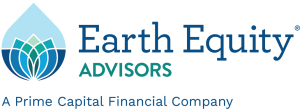[ Forbes ] Does Your Advisor Understand Responsible Investing? Ask them these 5 Questions to Find Out.
While investor interest in sustainable, responsible, and impact investing (SRI) has greatly increased in recent years, many financial advisors are still woefully unprepared to talk to their clients about SRI.
According to a 2020 survey of 800 Registered Investment Advisors (RIA)s by SEI – a global provider of investment processing, management, and operations solutions – only one-third reported growing interest in sustainable investing. This is disproportionate to data that suggests that 84% of all investors (90% among Millennials) want the ability to tailor their investments with their values.
But why?
Key findings from the SEI survey of 800 Registered Investment Advisors:
- 40% still don’t know enough about sustainable investing to make suitable recommendations.
- 30% say sustainable investing performance is the biggest barrier.
- 20% are unfamiliar with sustainable investing and don’t plan to recommend them within the next two years.
- 19% cite the lack of SRI information and education.
- 9% are concerned about greenwashing (the practice of spinning information to present an investment as environmentally friendly when, oftentimes, it is not).
Interestingly, there are solutions and clear rebuttals to every advisor concern stated above. But understanding investment strategies that utilize SRI isn’t going to happen overnight. It takes time, passion, and a genuine desire to not only understand your clients’ values but to also align those values with their investments. Unfortunately, many won’t be motivated until they see their business at risk because they are unable to communicate and connect with values-driven investors.
Questions to Ask
1. What are your licenses, credentials, and/or certifications?
This question will help you determine whether the advisor has the specific knowledge to deliver what you’re asking for. For example, the CSRIC® (The Chartered SRI CounselorSM) designation indicates the advisor is well versed in the history, definitions, trends, portfolio construction principles, fiduciary responsibilities, and best practices for sustainable, responsible, and impact (SRI) investments.
2. Do you specialize in SRI/ESG?
Some advisors have a focus or specialty. If their specialty matches your financial goals, this can provide a strong foundation for a lasting relationship – but you shouldn’t stop there. If you’re looking for an advisor to help you with values-based investing, it’s important to know that the advisor’s values are also aligned with yours.
3. How do you choose funds?
Many advisors simply point to a few ETFs or mutual funds offered by their firm. This is a big red flag for true SRI investing, but if that is the case, make sure your advisor is at least looking under the hood to examine and understand what the holdings are in the funds they are recommending for you.
4. How do you approach SRI/ESG investing?
If your advisor constructs their own funds, they should be able to explain how they consider traditional economics, fundamental analysis metrics, as well as sustainability metrics – such as environmental, social, governance (ESG) – and others important to business operations. But most importantly, they need to apply some level of common sense to building their SRI portfolios because ESG metrics are easily gamed. Hypothetically, an environmentally harmful company can compensate for their poor environmental impact by increasing charitable donations or appointing a minority/woman to their board – increasing their social and governance impact – and be considered “ESG.”
5. Can I see a sample of the companies your SRI/ESG funds are invested in?
This is perhaps the most important question you can ask to ensure your investments are making the impact you want on our planet, society, and future. Whether they are constructing their own funds or offering generic ETFs or mutual funds, they should be able to walk you through the holdings and speak to how the selected funds are aligned with your unique values.
The Takeaway
Investing is moving toward a more positive, intentional model and it’s being driven by you – investors who care about what they own. As the driving force behind this positive shift, you can be proactive about aligning your investments with your values and demand that your financial partner is the leader and advisor you’re paying them to be.
Originally published in Forbes.
Featured Image: @headwayio via Unsplash



